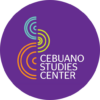Food for Life
Lessons from the Garden
Project Purpose
Food can be approached from many perspectives: first, we can concentrate on its primary interaction with our body (nutrition) and our inner welfare (psychology and psychoanalysis). We can examine its raw material elements, such as ingredients, flavors, procedures, and dishes (culinary practice and education). We can learn how certain foods evolved over time, how they moved from place to place, and how they influenced alterations in specific societies (history). We can examine food’s meanings and practices within a specific community and their relations with its culture (folklore, ethnology, and anthropology); and its production, distribution, and consumption means according to class, sex, gender, age and cultural level (sociology and economics) in Visayan communities.
We can consider the many ways food becomes part of social communication (media studies), of performances of identity and subjectivity (performance, cultural, and gender studies), of artistic expressions of all kinds (literary and art criticism). We can investigate the impact of food’s production, distribution, and consumption on water, land usage, and air pollution (environmental studies). This requisite list of possible approaches indicates that food studies are intrinsically interdisciplinary.
The Visayas-wide conference aims to gather at least forty (40) teachers, educators and researchers who will address these questions in the teaching and research festival format through practice-based paper presentations (teaching modules) and research-based paper presentations in the context of the MELCs. The teaching modules (with sample learning activities) and the research papers that will be presented are envisioned to also become the substance of a published proceedings that can be accessed and utilized online by other educators across the Philippines.
Food For Life 2023 is funded by the National Commission for Culture and the Arts.
